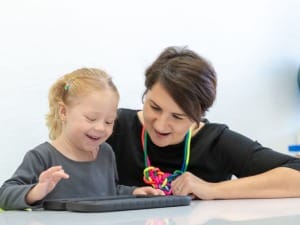From November, Ofsted will introduce significant changes to the way early years settings and schools are both inspected and reported on. The new Inspection Framework includes updated report formats, refreshed evaluation areas, and revamped inspection toolkits. These changes mark a move towards a clearer inspection model, as the evaluation areas recognise the complex challenges that schools are facing.
What is New?
From late 2025, Ofsted will no longer be providing an overall effectiveness grade for any provider inspected under the new framework.
The framework outlines new report formats which will replace the traditional single overall grade, giving a more detailed picture of a school’s performance across key areas. This change aims to highlight the strengths and any areas for improvement for parents, staff, and governors.
The updated evaluation scale for each evaluation area, other than safeguarding*, is as follows:
- Exceptional (highest quality provision): an evaluation area can be graded ‘exceptional’ when all the strong standards have been met, and if it meets all the additional standards in the ‘exceptional’ section of the toolkit.
- Strong standard: an evaluation area can be graded ‘strong standard’ when all the expected standards and all the strong standards have been met.
- Expected standard: an evaluation area can be graded ‘expected standard’ when all the standards are met – this includes meeting the legal requirements and the expectations set out in statutory guidance, as well as the professional standards required of the particular type of provision, where these apply.
- Needs attention: an evaluation area can be graded ‘needs attention’ when the ‘expected standard’ has not been met because some aspects of provision are inconsistent, limited in scope or impact and/or not fully meeting the legal requirements.
- Urgent improvement (lowest quality provision): an evaluation area can be graded ‘urgent improvement’ when it needs urgent action to provide a suitable standard of education and/or care for children and learners.
*Safeguarding is evaluated on a ‘met’ / ‘not met’ scale for providers.
What are the New Evaluation Areas?
Each provider has different evaluation areas, which have been outlined in the report:
Early Years
The evaluation areas for registered Early Years providers are:
- Safeguarding
- Inclusion
- Curriculum and teaching
- Achievement
- Behaviour, attitudes and establishing routines
- Children’s welfare and well-being
- Leadership and governance
Schools
The evaluation areas for all schools, including non-association independent schools, are:
- Safeguarding
- Inclusion
- Curriculum and teaching
- Achievement
- Attendance and behaviour
- Personal development and well-being
- Early years in schools (where applicable)
- Sixth form in schools (where applicable)
- Leadership and governance
These new evaluation areas reflect a broader view of what makes a high-quality provision, focusing not only on academic outcomes but also on well-being, inclusion, and personal development.
Toolkits
The release of updated inspection toolkits will give inspectors more flexible and evidence-based ways to assess schools, including feedback from pupils, staff, and relevant stakeholders. The toolkits will also provide the new grading standards and/or indicators for each evaluation area.
Next Steps
At System C, we focus on joining up care. Our range of social care software is the leading solution for both adults and children’s services, with a unique approach that combines these with education services to provide the local authority with a single view of the family.
You can learn more about our Education Case Management solution on our website.
In case you need more information about Ofsted’s Education Inspection Framework, you can read more on the Government’s website.
Disclaimer
This article summarises the inspection changes based on currently available Government and Ofsted guidance. As elements of the framework are still being finalised following consultation, some details may be subject to update or refinement.







